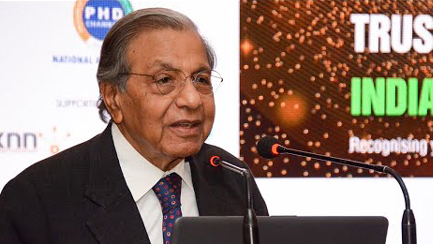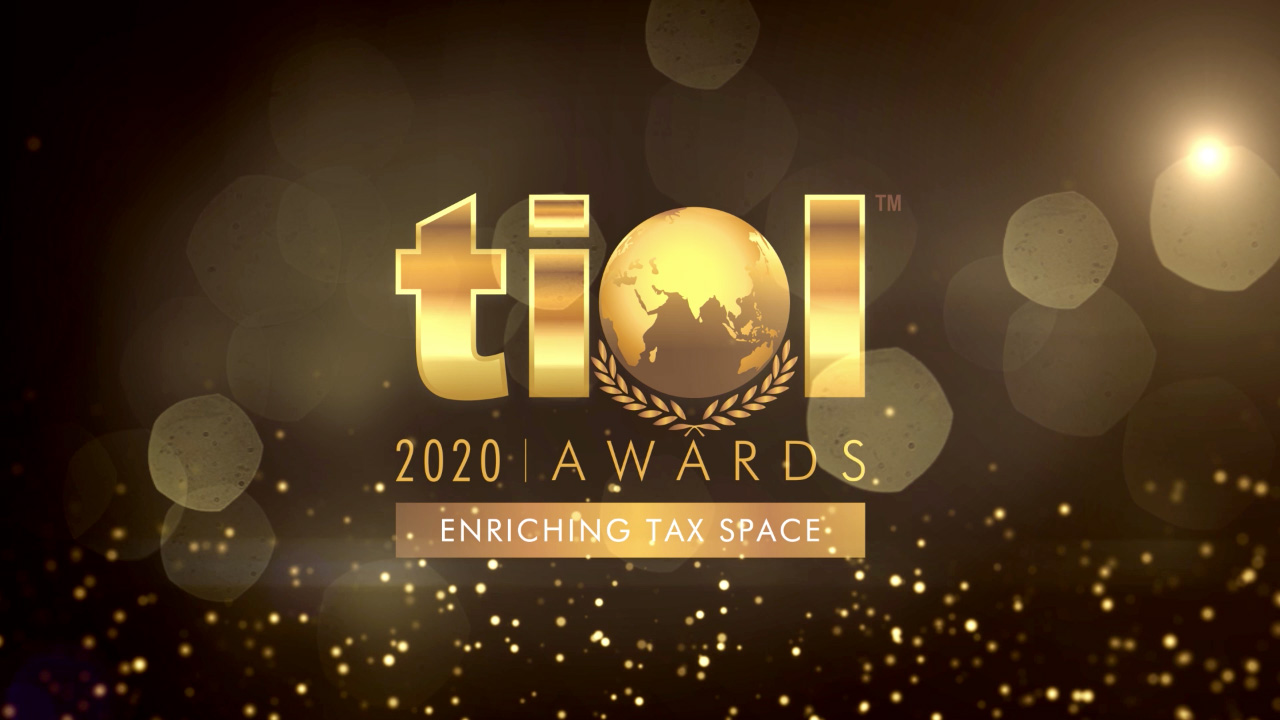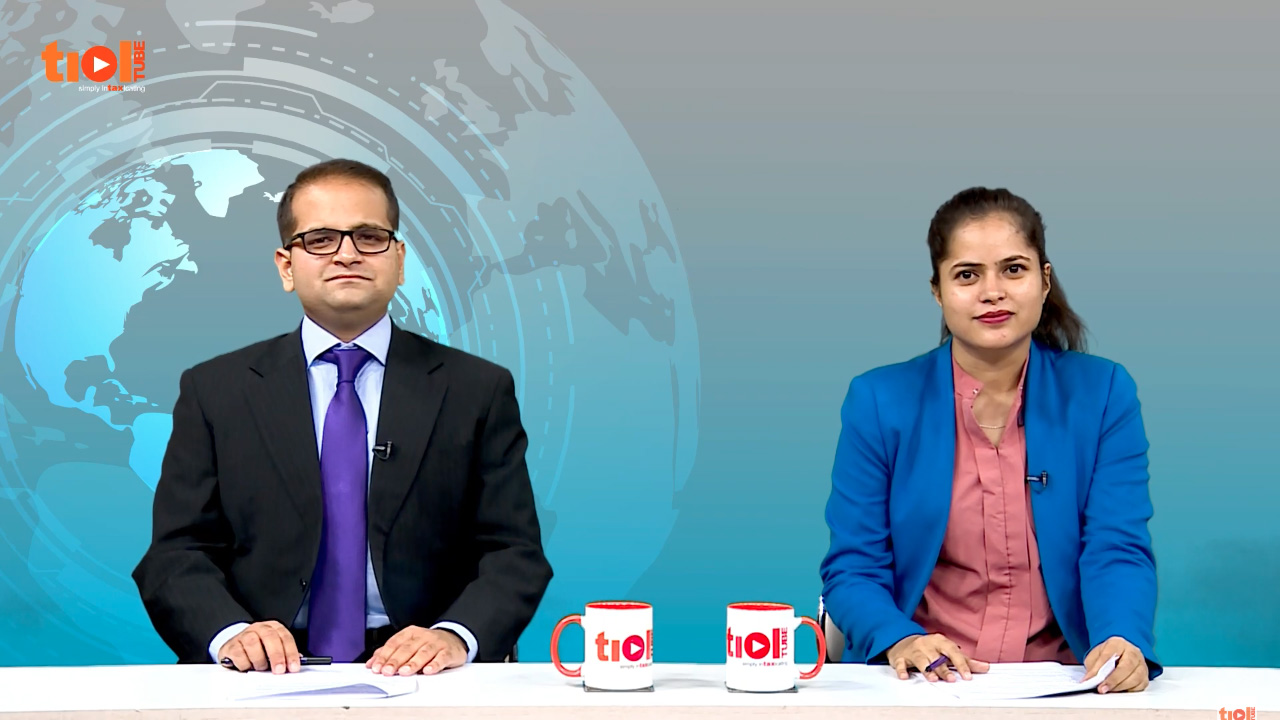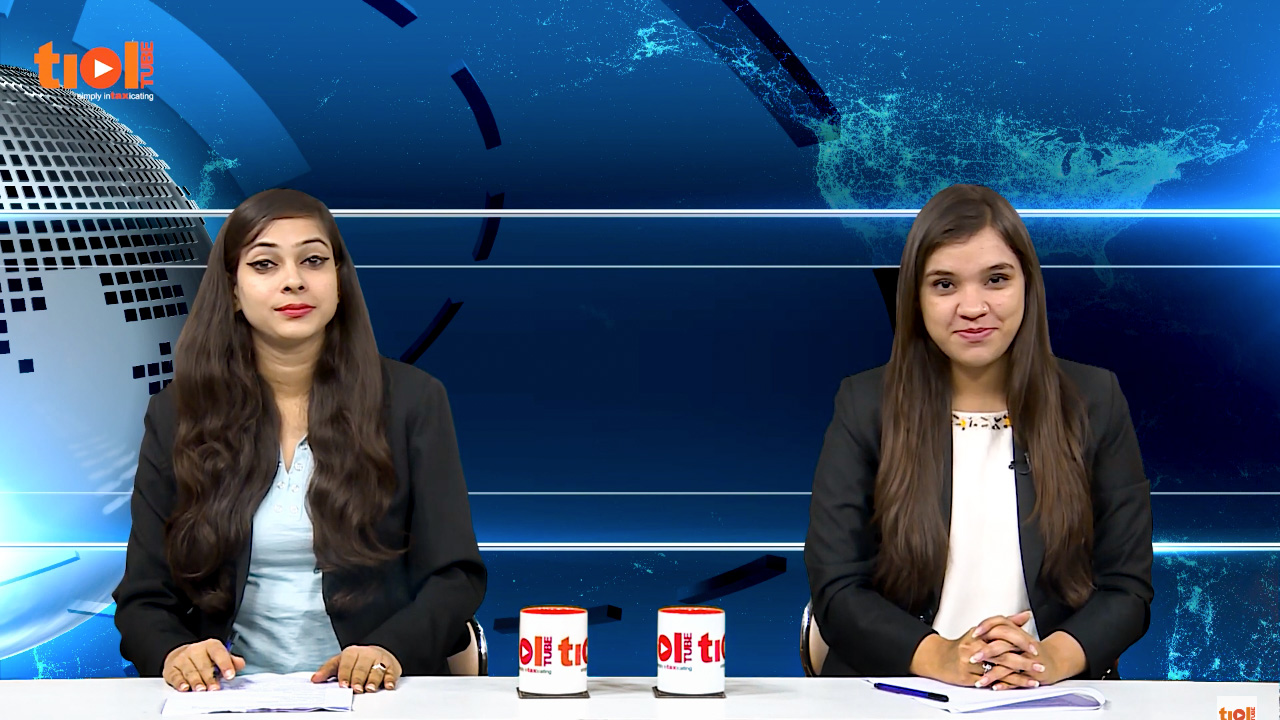SERVICE TAX
2019-TIOL-507-SC-ST
CCE & ST Vs IBM India Pvt Ltd
ST - The appellant company provides Business Auxiliary Services - It entered into agreement with M/s IBM World Trade Corporation, USA whereupon the assessee was appointed as IBM's business partner in India, for marketing selected IBM products in India - The appellant received commission in convertible foreign exchange as consideration for its activities - As per the agreement, the appellant also agreed to identify customers in India, who were entitled to zero or concessional duties on import of computer systems and peripherals - IBM USA appointed M/s Tata IBM for this work, whereupon M/s Tata IBM received a fee equal to the difference in prices at which products were invoiced by IBM after adjusting insurance & freight and the normal price at which M/s Tata IBM is entitled to buy such products from IBM - The services provided by IBM India apparently were provided & consumed within India - It appeared to the Department that the appellant failed to pay service tax on such fee/commission received from IBM USA - Hence SCNs were issued, raising duty demand with interest & penalty & the same were confirmed upon adjudication - Later, the Tribunal held that the appellant provided service to foreign company located abroad - The parent company has no commercial establishment or office in India - Hence the appellant was found to have satisfied all conditions as per the Export of Service Rules 2005 - The Rules contain no condition that services performed in India do not qualify as export of service - Further, the sales commission was received in convertible forex and so the the appellant fulfiled all conditions u/r 3(1)(iii) of the Export of Service Rules - Hence the demands raised were set aside.
Held - Delay is condoned - Notice be issued - Counter affidavit be filed within 6 weeks time - Matter be tagged with C.A. No. 6556 of 2015: SC
- Notice issued: SUPREME COURT OF INDIA
2019-TIOL-2663-HC-MAD-ST
BGR Energy Systems Ltd Vs ADDL CGST & CE
ST - Issue is whether the petitioner or their Banker namely Indian Bank, Adyar, is liable to pay service tax in respect of the service rendered by intermediary Bank as well as the Banker at Iraq which furnished the Bank Guarantee to the supplier of the petitioner.
Held: In this case, there is no dispute to the fact that the petitioner's bank in this country namely Indian Bank, Adyar has not furnished the Bank Guarantee to the foreign supplier of the petitioner - On the other hand, the Indian Bank approached the intermediary Banks which are admittedly located outside this country, which in turn approached the bank situated in Iraq only for the purpose of furnishing Bank guarantee on behalf of the petitioner to its foreign supplier at Iraq - Therefore, there is no doubt that though the event of furnishing the bank guarantee had taken place in three parts, the chain of events connecting those three parts will undoubtedly lead to an irrebuttable conclusion that all those three events were aimed only to provide the service to the petitioner, namely furnishing of Bank guarantee to its foreign supplier - As rightly pointed out by the authorities who passed the impugned order, the petitioner had incurred expenditure in foreign currency towards Bank Guarantee Commission and export proceeds realisation charges paid to the intermediary Banks situated outside India - Certainly, a taxable service has been provided to the petitioner namely, Banking or Other financial services - It is the categorical finding of the authorities who passed the impugned orders that taxable service by way of issuing bank guarantee to the petitioner's customer at Iraq and by way of remitting the exports proceeds to the petitioner, had been performed by the intermediary banks for the petitioner, therefore, the petitioner cannot claim that they are not the recipient of the service - Though the petitioner had not made any remittance to the foreign intermediary banks directly, there cannot be any dispute that the expenses met out towards rendering of such service by the Indian Bank were borne by the petitioner - In other words, by no stretch of imagination, it can be said that the petitioner's Bank at Chennai, namely, Indian Bank, Adyar, is recipient of the Service provided by the intermediary Bank or the foreign bank situated in Iraq - Needless to say that the Indian Bank, Adyar, namely, the banker of the petitioner has facilitated the service to be rendered by the intermediary Banks and the foreign Bank in Iraq, only for the purpose of providing bank guarantee on behalf of the petitioner - Therefore, the petitioner is not justified in shirking its liability to pay service tax relatable to the Bank Guarantee Commission and realisation charges involved in this case - the recipient of Service involved in this case namely, furnishing of bank Guarantee, is only the petitioner and not the Banker - Since the service receiver is the petitioner and the place of provision of such service is also the location of the petitioner, which is within India, the Service Tax liability is rightly fastened on the petitioner - no reason to interfere - issue is answered against the petitioner - both the Writ Petitions are devoid of any merit, hence dismissed: High Court [para 18, 19]
- Petitions dismissed: MADRAS HIGH COURT
2019-TIOL-2661-HC-PATNA-ST
Jay Mata Di Travels Vs UoI
ST - Petitioner has challenged the O-in-A and the O-in-O passed by the lower authorities in the matter relating to confirmation of demand of service tax - Petitioner alleges that the demand has been confirmed on mere assumptions and presumptions; that burden of proof for determining the amount of service tax payable is on the authorities; that penalty cannot be imposed without giving any findings or reasons; that mere availability of statutory remedy of appeal cannot be a bar to maintain an application under Article 226 of Constitution.
Held: When the statutory remedy is created under the Act for the redressal of grievances, it would not be proper to entertain the writ petition ignoring the statutory dispensation - in view of the availability of an equally efficacious statutory remedy of appeal to the petitioner under the Act, Bench is not inclined to entertain the present application in extra writ jurisdiction under Article 226 of the Constitution of India - application is dismissed with liberty to the petitioner to avail of the statutory remedy provided under the Act - However, in case, an appeal before the Tribunal is filed under Section 86 of the Finance Act, 1994 within two weeks along with an application for condonation of delay caused in filing the appeal, the Tribunal shall condone the delay and dispose of the appeal on merits in accordance with law: High Court [para 5 to 7]
- Petition dismissed: PATNA HIGH COURT
2019-TIOL-3408-CESTAT-DEL
C Net Infotech Pvt Ltd Vs Pr.CC & CE
ST - The assessee is engaged in providing taxable service under category of business auxiliary service - They have opted for VCES wherein they have voluntarily declared service tax liability - The declared short payment of service tax was duly deposited by assessee in two installments within the given time period as provided under VCES - During audit, it was pointed out that the assessee have grossly mis-declared the service tax liability for financial year and therefore the declaration made by assessee was substantially false and therefore the same need to be rejected - On the basis of findings of audit party, the Department had issued a SCN demanding a service tax under Section 73 (1) of FA, 1994 alongwith interest under Section 75 of FA, 1994 - The Department has written to the assessee vide three letters, however, as per Department, the assessee did not respond to the letters of the Department - It was only after sometime that the assessee have replied vide their letter dated 5 August 2014 that due to heavy rains their financial books have got destroyed and some of receipt shown in balance sheet for the financial year 2009-2010 and 2010-2011 also includes certain receipts on account of software product sale by them and same has also been claimed for financial year 2011-2012 and 2012-2013 - However, the claim made by assessee that part of receipt for financial year involving 2009-2010, 2010-2011, 2011-2012 and 2012-2013 also involved sales receipts on account of sale of software product, however, it is a matter of record that no details in the form of any invoice or sales tax/VAT/assessment return has been submitted by assessee to substantiate their claim - It is also a matter of record that so far as the short payment of service tax for financial year 2013-2014 is concerned, the assessee have admitted their liability and the short payment of service tax has been deposited by them after issue of SCN - The Department have enough evidence to prove that VCES declaration made by assessee for financial year 2009-2010, 2010-2011 has been substantially false as the assessee have not come clean in making a declaration before the Department about their actual service tax liability and therefore, VCES declaration made by assessee have correctly been rejected - The claims made by assessee that part of receipts pertains to sale of software product has also not been substantiated by assessee by adducing the requisite evidences in forms of invoices or VAT/sales tax returns and therefore the findings given in impugned O-I-O are legally sustainable: CESTAT
- Appeal dismissed: DELHI CESTAT
CENTRAL EXCISE
2019-TIOL-3407-CESTAT-DEL
BSL LTD Vs CCE AND CGST
CX - Whether the assessee is entitled for interest on delayed refund of interest - According to assessee, the interest of Rs. 39,01,279/- became due on 02.08.2012 and since the amount of interest was received by assesseeon 16.07.2015, therefore the revenue has withheld the refund of interest without any authority of law due to which the assessee had to incur expenses in an avoidable litigation for not getting its legitimate dues and therefore the assessee is entitled for interest of Rs. 6,84,274/- The assessee is claiming interest for the period during which the revenue withheld their legitimate interest claim of Rs. 39,01,279/- without any authority of law - It is not disputed that the refund claim was filed in year 2002, which was sanctioned in year 2012 for which the assessee earned the interest of Rs. 39,01,279/- for the period 2002 to 2012 on the delayed refund - This interest which ought to have been paid by Department to the assessee in the year 2012 itself was ultimately paid on 16.07.2015 - Therefore, no doubt, there is inordinate delay on the part of revenue in granting refund of interest to the assessee - In Income Tax Act also, there is no provision for grant of interest on interest, but the Gujarat High Court in the matter of D.J. Works has held that although there is no provision for payment of interest on the interest amount, but it would be payable at the same rate at which the excess amount carries interest - The aforesaid decision was further followed by High Court in the matter of Chimanlal S. Patel and it was held that the Revenue is liable to pay interest on the amount of interest which it should have paid to the assesee but has unjustifiably failed to do so - This view point of the High Court was upheld by Supreme Court also and the Supreme Court in matter of Narendra Doshi 2002-TIOL-561-SC-IT-LB dismissed the appeal filed by the department and held that the revenue is liable to pay interest on the amount of interest - Only because there is no provision for interest on refund of delayed interest that does not mean that there is any bar or prohibition for granting the same and therefore following the law laid down by Supreme Court and the decisions of Gujarat High Court as well as the decision of the coordinate Bench of Tribunal, the prayer of assessee for grant of interest on delayed payment of interest is allowed and the impugned order of Commissioner is set aside: CESTAT
- Appeal allowed: DELHI CESTAT
2019-TIOL-3406-CESTAT-DEL
Birla Corporation Ltd Vs Commissioner of CGST & CE
CX - The issue in this appeal is whether penalty under Rule 15 (1) of CCR at Rs. 2 Lakhs have been rightly imposed on assessee whereas the issue in appeal filed by Revenue is that the assessee have deliberately taken cenvat credit of full quantity of input, being of petroleum coke which was imported in one ship load vide one Bill of Entry, but on the date of taking credit, only about 1/5 of the consignment had reached the factory and about 4/5 was still in the transit or lying at the port in the ownership of company - It appeared to Revenue that the assessee violated the provisions of Rule 3(1) of CCR as they have taken and utilised excess credit - It is a case of taking credit, part of which was rightly taken and part of which was prematurely taken - Though the same was found to be fully allowable at a later point of time after about 70 days - Admittedly, there is no case of non receipt of inputs by assessee - No merits found in the appeal filed by Revenue and same is dismissed - So far as the assessee's appeal is concerned, penalty imposed is also nominal - Accordingly, the appeal of assessee is also dismissed: CESTAT
- Appeals dismissed: DELHI CESTAT
2019-TIOL-3405-CESTAT-DEL
Ashok Sharma Vs CCE
CX - The assessee is engaged in manufacture of various iron & steel products - They had purchased MS Scrap from various First Stage dealers - On the basis of information, Department issued a SCN alleging that the assessee is evading payment of Central Excise duty by availing Cenvat Credit on the basis of invoices issued by said First Stage Registered Dealers without actually receiving the goods i.e. MS Scrap from them - It was further alleged that the said dealers had purchased MS Scrap from various manufacturing units which were non-existent and therefore, the First Stage Dealers had only supplied invoices without supplying the material to the assessee - The Revenue is not disputing the fact that First Stage Dealers raised invoices giving all the particulars required to be given under provisions of Cenvat Credit Rules in respect of material supplied to the assessee - It is also not being disputed that the assessee has received inputs and entered the same in their Central Excise records - The said inputs were further used by assessee in the manufacture of their final product which were cleared by them on payment of duty - This fact is sufficient to prove the physical entry of inputs in assessee's premises - Further, the ledger account and RG-23A register maintained by assessee supported by weighment slips also prove the receipt of the goods - During arguments before Tribunal, assessee also produced the invoices against which they have availed the Cenvat Credit along with supporting documents including lorry receipts and weighment slips - Therefore, the burden is cast upon Revenue to prove that it was merely a paper transaction and goods were not received by assessee, which it failed - It is further shown that all the payments made to First Stage Dealers are through banking channels by way of Cheques/RTGS - The Revenue has not brought on record any evidence to prove any flow back of money - The Revenue's reliance on the VAT Returns filed by First Stage Dealers to contend that there is no mention of any receipt of goods from units at Dhanbad is untenable in as much as the VAT Returns sought to be relied upon by the Revenue only pertains to purchases within the State made by the said First Stage Dealers - The assessee have discharged its onus as required under Rule 9(1) & (5) of CCR, 2004 and as explained by Allahabad High Court in its decision in case of Juhi Alloys limited 2014-TIOL-2693-HC-ALL-CX - No reason found to sustain the impugned Order and the same is hereby set aside in toto: CESTAT
- Appeals allowed: DELHI CESTAT
CUSTOMS
2019-TIOL-2662-HC-PATNA-CUS
CCE, C & ST Vs Gopal Prasad
Cus - Smuggling of gold biscuits - Commissioner (Appeals) reduced the penalty amount to Rs.8,00,000/- from Rs.10,00,000/- on each of the respondents and in appeal, the CESTAT set aside the order passed by the Commissioner (Appeals) and allowed the appeals filed by the respondents - Revenue is before the High Court and submits that Tribunal failed to appreciate the case of the appellant in true perspective; that Tribunal completely misconstrued the fact that the seized gold biscuits having having foreign marking and recovered from Sujit Kumar at Indo-Nepal Border in itself was the most reliable evidence that the seized gold biscuits were smuggled and contraband in nature.
Held: Findings recorded by the Tribunal would suggest that the evidences led on behalf of the parties were properly appreciated by the Tribunal and it has taken a plausible view - The reasons assigned by the Tribunal for arriving at its finding that the impugned order cannot be sustained are cogent and sound and they are neither illegal nor perverse - In absence of a substantial question of law raised in the appeal, the same is not maintainable - Revenue appeal is dismissed: High Court [para 13, 16, 17]
- Appeal dismissed: PATNA HIGH COURT
2019-TIOL-3404-CESTAT-MUM
Advani Pleasure Cruise Company Pvt Ltd Vs CC
Cus - The assessee has imported second hand/used Casino Ship M V Majesty vide Bill of Entry - The classification claimed was under 8901 - The ship was examined on first check basis - As per the examination report, the value of the vessel excluding game equipments was proposed in range of US$ 1,125,000 to US$ 1,400,000 by the docks - The value of game equipment was proposed around US$ 117,500 and the value of chair and stool around US$ 15,430 - It was also suggested that vessel would more appropriately be classifiable under heading 8903 as against 8901 claimed by the importer - It was also stated that casino games/chairs/stools are old and used and fitted in the vessel may be classified separately under Chapter 94/95 and may also attract ITC violation - Undisputedly the goods were examined by the Customs on first check basis - From the examination report, it is quite evident that casino games have been fitted on all the three decks of the vessel, and the layout of the decks including those of chairs and stools on the deck was to facilitate the playing of those casino games - Once the vessel is fitted with such casino games across the entire three decks with no regular seating plan, the same cannot be called a passenger ship - It is also not the case of assessee that there is a fare charged by them for the voyages that can be undertaken on vessel imported - It is settled law that classification of goods under the Customs tariff is to be determined by the Custom Authorities and for determining the classification the Custom Authorities are bound by the Terms of Entries in the Tariff, Rules of Interpretation and decisions rendered by the competent courts in relation to the interpretation of tariff - The view taken by other authorities acting under other Acts and Legislation may have persuasive value for determining the classification under the Customs Tariff but cannot be termed as in any case binding on the Customs Authority for determining the classification - From the scheme of Chapter 89 of Customs Tariff, it is clearly evident that the Chapter has been totally aligned with HSN upto six digit level - The HSN explanatory notes along with the relevant tariff have been analyzed by bench of Tribunal in case of Waterways Shipyard Pvt Ltd , and the classification determined by application of Rules of Interpretation under heading 8903 - Tribunal has in the said decision determined classification in line with the principles of classifications as enunciated by Apex Court - Following the decision of Tribunal in case of Waterways Shipyard Pvt Ltd , this Tribunal hold the classification of imported vessel under heading 8903 as determined by the impugned order: CESTAT
- Appeal dismissed: MUMBAI CESTAT








